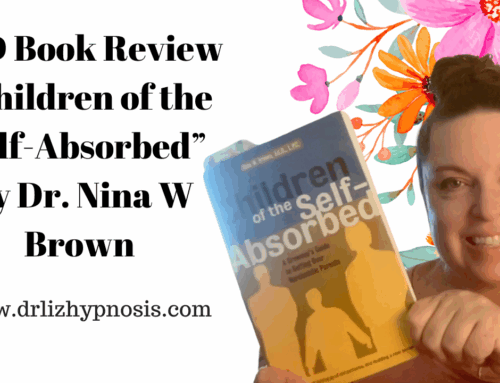NPD Moms – The Secretly Mean Type with Dr Liz
Transcript
Hi Dr. Liz here, and I’m doing a series on the different types of narcissistic mothers. This information comes from the book: Will I Ever Be Good Enough, Healing the Daughters and Narcissistic Mothers by Carol Mcbride. It’s an excellent book. I highly recommend it. Hey, I am a specialist in this area. Can always see more about me over at drlizhypnosis.com. And if you’re looking for therapy, make sure you get a therapist who’s educated about this area, because if they’re not, they will often minimize or invalidate things that you’re saying or you’re seeing. So this is sometimes very subtle patterns that happen that children begin to pick up on as they grow older, as you move into your twenties and thirties and forties, before you realize like, whoa, I have a narcissistic parent and this is a pattern that’s been going on for a long time.
So it’s these incidents that happen that somebody would be like, oh, maybe you’re overreacting. Or, you know, everybody has a bad day. Sometimes you’ll hear it. Something like that when it’s like, no, this is a pattern that’s happening. So children often feel sort of fuzzy about this or befuddled, or when someone asks for an example, they’ll be like, well, she did this, or she did that. And they’ll sort of give you like a blank stare or something like that. All right. If they don’t really know about this area or they don’t have this experience. So it becomes this thing sometimes of, um, you know, people like love their mothers and there’s a lots of cultural pressure to love your mother. And they really can’t imagine a mother that is this bad. They really can’t like sometimes they hear about them or maybe they’ll see them in movies or something like that.
But their real experiences like quite the opposite, so they really do have a hard time understanding you. Anyway, I started this off by saying, make sure you have a professional that is educated in this area. If you’re looking for healing for yourself, because it’s important that you feel validated and heard and know that this is your truth. You’ve been living with this for a long time and then navigating how you do want to live. How do you want to live your life? How do you want to build yourself up so that you feel good and worthy and, your life feels meaningful. And then what kind of contact do you want to have with your parent? All important things. Anyway, we were talking about the different types in this one is the secretly mean, mom, the secretly mean narcissistic mother. Now, if you had one of these, you will immediately. Yeah. Resonate with that.
When I say this, this is the mom who is perfect on the outside. When you’re in public, wherever that is church, the grocery stores. Cool. They seem to be like the perfect mom, doting, caring, loving. And then as soon as you get home, all that vanishes, okay. It is nowhere to be seen. Like the mom will often put her children down at home. There’ll be, she’ll be mean to them. She’ll say, well, I’m exhausted. You guys go take care of yourself. You know, now this is not all moms get exhausted sometimes and say, go take care of yourself. Most of them. But this is a pattern that happens, like every time the mom gets into a private home, her private home, all of a sudden the children are awful and not good enough. They need to lose weight or they need to do this better. Or they get put down constantly, like all of this. And then the moment that you step out of the house, it’s like, oh, you know, I love my daughter so much. She’s beautiful and perfect. And of, you know, I prayed for them. These are the best children in the world.
And then when she stepped inside, it’s like, oh, you know, you’re awful. Don’t ever have children. Like children are the worst things in the world. And you’ll hear just exactly the opposite. Okay. So you grow up feeling like you’re living in sort of this crazy world and that, um, appearances are more important than, you know, what’s going on internally the truth. Right? So be aware of that. That’s often a pain point of the daughters of these mothers is like, how do I live authentically? And how do I, um, reconcile these feelings of myself, of wait a minute? You know, my mom was always saying this and this and this in public, but then in private treating me awful.
So it’s something to be aware of that at some point you have to reconcile those two and realize it wasn’t about you at all. Okay. It wasn’t, this was your mother’s, uh, sickness, illness, uh, personality disorder. However you want to call that, that doesn’t have to do with who you really are. Okay? But there’s pressure, you feel this internal pressure because you grew up with that sometimes to, um, have this like difference going on. Okay. So you begin to exhibit that as you go out in the world too. Like, perhaps I need one face for the world and one face internally. And you know, we all step into different roles as we are in an office, as we have roles as mothers, as parents, as at one place,e at the workplace. But generally there’s a sense of authenticity that runs through that. Okay.
It is sort of like, um, Mr. Rogers, when, you know, if you know the old Mr. Rogers shows and he puts on his sweater before he steps into the Mr. Rogers, um, uh, really the set right at the Playhouse, the house that he lives in, where he’s teaching children, all kinds of stuff. But there’s a sense that Mr. Rogers is Mr. Rogers, outside of that. And in there are all kinds of videos about him now, too. He was a minister and he really was authentic and kind, and all of this. Okay. That is an example of someone who’s consistent internally and externally, consistent in the home and outside of the home. Right. You, if you had this type of mother, you didn’t grow up with that. You had a feeling of like, oh my God, you know, my mother has two faces.
Right. And we used to say, these people are two-faced, right. That is a good description of them like to your face. They’re wonderful. I’m like, oh, how are you today? And then once they’re away from the person, they will put them down. They’ll complain about them. They’ll say how awful they were. They’re not honest and genuine or authentic in any shape or form. They are two-faced. And that is a form of a narcissistic mother if it gets to an extreme, okay. So that’s what we’re talking about here, extremes, because again, I want people to understand these, go into extremes here. It’s not like, you know, you have to be nice to your boss, right? Let’s say, if you want to keep your job and let’s say you don’t particularly like your boss, you’re still polite to them. You’re still professional with them. Um, that’s not two-faced, okay. That’s called keeping your job. Right?
This, the two-faced is a pattern that this happens across time across people and across environments where there’s this private mean ugly, awful self to her children. And then this like perfect looking self on the outside. Okay. That’s the difference here? Talking about extremes. All right. I hope that’s helpful to someone. And again, if you want healing, I highly suggest looking for someone to help you work through this, whether that’s me or somebody else. Okay. My website again is drlizhypnosis.com and there’s free stuff over there, like free hypnosis files to reduce anxiety and to increase emotional stability and, um, decrease pain, all kinds of stuff. So go give it a look.
All right.

I work with people all over the world. If you want to feel better and have a transformed life, grab your Free Consultation with me to get the deets on working together (the how, the when, the where, and the how much)!
Click to Schedule a Free Consultation
Peace and Health,
Dr. Liz






